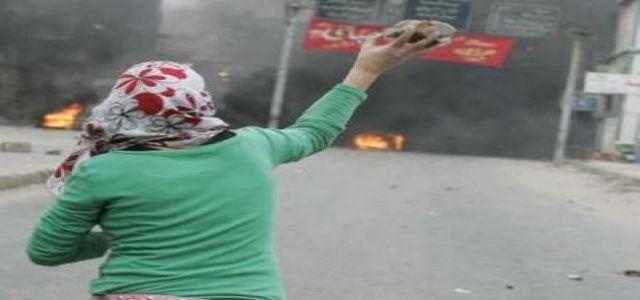- Human RightsOther Views
- June 24, 2009
- 11 minutes read
Giving voice to the voiceless, in Iran and the Arab world

Do you hear the silence coming from the Arab world over events in Iran? Let”s start with Arab leaders, experts at vote rigging – if they hold elections at all. What on earth can they possibly say about the outcome of Iran”s election without sounding like pots calling the kettle black? They wouldn”t dare criticize Iranians for the widespread allegations of vote fraud. Nor would they rush to congratulate Mahmoud Ahmadinejad, long a nemesis as the leader of a regional rival with nuclear ambitions. And so they remain quiet, but their silence is surely tempered with discomfort. After all, young people make up the majority of people in their countries, as they do in Iran. Surely, watching thousands upon thousands of Iranians demanding that their voice be heard, Arabs suffocating under dictators of their own must have thought, “That”s me.” For some, the silence must be the sound of despair. In Iran, they are watching the implosion of the politics of cutting off our nose to spite our face. There have been a succession of Arab leaders whose legacies were quite simply that they “stood up to America and Israel.” No matter what they did to the people of their own country, no matter the human-rights violations, the mass graves, the stifling of expression. Standing up to the United States and Israel was enough. So Mr. Ahmadinejad is a familiar figure. But Saddam Hussein is gone. Libya”s Moammar Gadhafi has gone from Washington”s foe to friend. The region is full of U.S.-supported dictators, from Egyptian President Hosni Mubarak to the kings of Jordan and Saudi Arabia. So the role of “standing up to America and Israel” has fallen to non-state entities, such as Hamas and Hezbollah. But follow their money trail and it leads to Iran. Mr. Ahmadinejad became the latest leader Arabs lionized and forgave for cutting off our nose to spite our face. Little did the repressions visited upon Iranians matter, even though their hardship was often mirrored by many of the Arabs cheering on Mr. Ahmadinejad. Iran supported Palestinians and Mr. Ahmadinejad regularly railed at the United States and threatened Israel. But now, with thousands filling the streets in his own country, effectively saying that it”s not enough to just stand up to the United States and Israel, what are those who lionize Mr. Ahmadinejad in the Arab world thinking? Especially now that George W. Bush is gone? Where is the sympathy or support for the plight of Iranians? Silence. Perhaps the most telling silence in the Arab world is the sound of hearts breaking over the dream of political Islam. When the 1979 Islamic revolution swept away the U.S.-backed Shah and his injustices, Iran held out the tantalizing mirage of rule by Islam, even in countries that did not share Iran”s Shiism. But now, 30 years later, Iranians are demonstrating against not a secular U.S.-backed dictator, but a system run by clerics who claim to uphold democracy as long as its candidates are given the clerical stamp of approval before elections. The demonstrations in Iran are not about the United States or Israel. They”re not about Mr. Ahmadinejad or rival Mir-Hossein Mousavi. They”re not about the poor or the rich in Iran. They are about people who feel their will and voice have been disregarded. In Egypt, it”s about a secular dictator, in power for almost 28 years, who disregards our will and voice. In Iran, it”s about a clerical regime in power for 30 years, hiding behind God. Dictatorship is no sweeter if its torture and beatings are committed in the name of God. It must be especially difficult for political Islamic organizations such as Egypt”s influential Muslim Brotherhood, which congratulated Mr. Ahmadinejad on his “victory” and yet whose generational disagreements and divisions mirror Iran”s own. A young generation of members have taken on their elders in recent years over issues such as the movement”s prohibition against women and Christians becoming president of Egypt. The aging leadership gave some of them the very undemocratic choice of shutting up or leaving the Brotherhood. How do we know? The same way we”ve known about much of Iran”s strife – through blogs and social networking sites, such as Facebook and Twitter. That”s where the most noise is these days in the Arab world – online. It is online where bloggers connect repression in Iran and Arab countries. For example, Egypt”s Wael Abbas, known for exposing police brutality on YouTube, was quick to send out tweets about how Iran”s clerics used plainclothes thugs to terrorize demonstrators, just like Mr. Mubarak”s regime. It is online where young Arab men and women express envy over the huge Iranian demonstrations in the face of government crackdowns. It is online where they expose Washington”s hypocrisy and ask why there was no U.S. support for the peaceful demonstrators beaten and dragged off the streets of Cairo in 2005 and 2006. And it is online where they argue over the politics of cutting off our nose to spite our face, challenging each other to support the will and voice of Iranians. To circumvent the Arab world”s embarrassing silence on Iran, go online. Iran”s blogosphere is older and more advanced than the Arab world”s, but both blogospheres give voice to the voiceless and shatter silence. Mona Eltahawy is a New York-based journalist and commentator, and recipient of the European Commission”s 2009 Samir Kassir Prize for Press Freedom for opinion writing.



